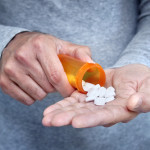The sleepy Holiday Inn in suburban Gaithersburg, Maryland, was the implausible setting last fall for a dramatic break with FDA tradition. On November 1, the FDA’s Antiviral Drugs Advisory Committee, a panel of independent consultants, voted 13 to 1 to block Gilead Sciences’ campaign for accelerated approval of its new nuke, adefovir. While there have been rocky hearings in recent memory, this was the FDA’s first rejection after 14 straight approvals of anti-HIV drugs. Nearly every drug went through accelerated approval, which allows marketing of products with limited data when lives are at stake.
Despite this unprecedented outcome, longtime FDA panel member Roger Pomerantz, MD, of Philadelphia’s Thomas Jefferson University, denies any policy implications for the fast-track process: “There’s been no change at all on our part. What has changed is the armamentarium [collection of antiretroviral drugs]. There might have been a niche for adefovir a few years ago, but given its toxicity and weak activity, we thought it should stay in expanded access while more data are collected.”
Ron Baker, the editor of www. HIVandHepatitis.com and one of the few treatment advocates to lobby for immediate adefovir approval, strongly disagrees with the panel’s decision. In a website editorial he argued, “To many people with AIDS who are without treatment options, adefovir may look pretty good. At least the drug offers a reasonable hope, which ought not to be denied to any person facing the grim prospect of battling multidrug-resistant HIV.”
In the aftermath of the advisory panel’s negative vote, Gilead is scrambling to negotiate a narrow approval for adefovir along the lines that Baker suggests. But it is hard to put faith in a drug whose most striking activity is its side effects. After a year, about half of the people taking adefovir at the original 120-milligram dose show potentially life-threatening deficiencies in their kidneys’ blood-filtering ability. (The kidney malfunction usually reverses after discontinuing adefovir.) Gilead’s response, to halve the recommended dose, took place after the main adefovir trials were done. At the hearing, Gilead could produce one-year safety data for only 73 people on the new 60-milligram dose. A shocked silence settled over the advisory committee when this puny figure came out.
Gilead also offered the results of a last-minute trial attempting to show that, illogical as it may seem, 60 milligrams of adefovir is as effective as 120 milligrams. At the hearing, FDA officials and committee members complained that this trial was too short and bewildering to demonstrate anything at all. The comparison between doses is dubious particularly because only one large trial found that the higher dose is effective against HIV. Adefovir’s performance here was modest compared to the nine anti-HIV agents approved after this trial’s 1996 commencement.
Worse yet was ACTG 359, a 1998 salvage-therapy study in people with failing regimens including indinavir (Crixivan). It compared combos containing the approved non-nuke delavirdine (Rescriptor) to ones with adefovir. ACTG 359 found that the regimens with delavirdine successfully suppressed HIV twice as often as the ones with adefovir. Another dismaying observation was that combining adefovir with either delavirdine or the protease inhibitor saquinavir (Fortovase) seemed to drastically cut these drugs’ blood levels, rendering them ineffective. Adefovir’s inability to rescue ACTG 359’s Crixivan failures remains a big strike against the new compound’s chances for accelerated approval.
Gilead’s immediate hope is to cull some new data out of past and ongoing adefovir trials to make a convincing case for approval as a last-ditch drug when all else fails. In the meantime, adefovir is available through an expanded-access program open to people in this situation. With 4,000 people currently receiving adefovir through expanded access, the program will be a valuable source of further safety info on the 60-milligram dose.
In one recently commenced trial, Gilead is finally pursuing 18-month-old lab studies indicating that adefovir has extra activity against mutated HIV that resists the nuke 3TC (Epivir). This and other new trials may or may not demonstrate a special niche for adefovir, but they will take two years to complete. By then, more potent agents, such as Abbott’s new protease inhibitor, ABT-378, which is performing very well as both initial and salvage therapy, and Gilead’s own tenofovir, a better and safer compound in the adefovir family, will offer a more reasonable hope to those with limited treatment options.
Dead on Approval
An FDA panel surprised advocates by refusing to rubber-stamp adefovir, Gilead’s new anti-HIV drug. Dave Gilden sees this first-ever rebuff as proof that the system works.






Comments
Comments